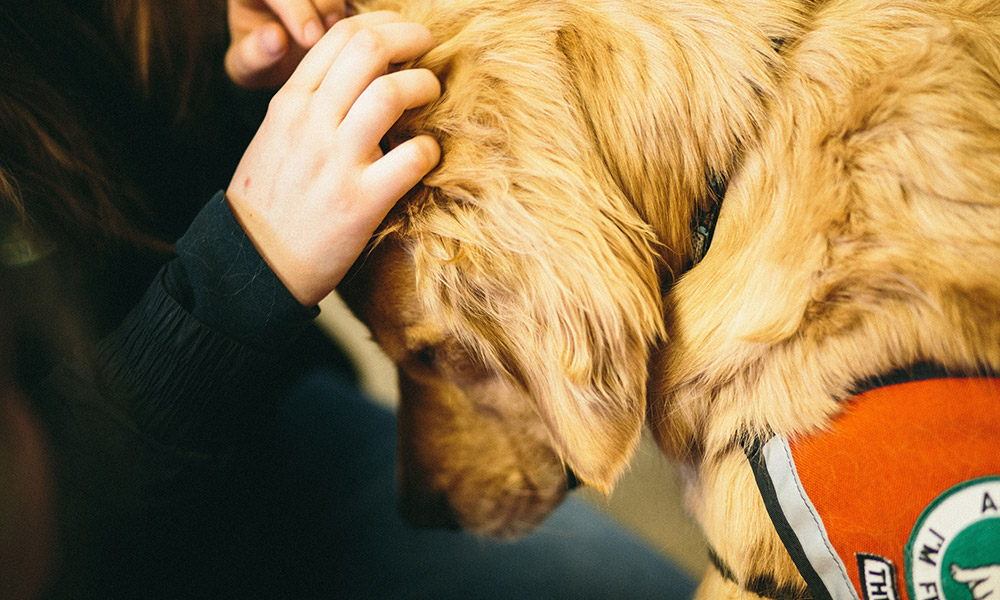
Golden Retriever Doogle (above), and his people Geri and John Eakins, are one of many volunteer handler-dog teams in UBCO’s Building Academic Retention Through K-9s program. New research confirms that canine cuddles can significantly enhance student wellbeing. Photo by Adam Lauzé.
If you find watching funny dog videos puts a smile on your face, try indulging in canine cuddles.
New research from UBC Okanagan confirms physical contact with a therapy dog can significantly enhance student wellbeing.
The research was led by Dr. John-Tyler Binfet, associate professor in the School of Education and director of the Building Academic Retention Through K-9s (BARK) program. Co-authors include BARK coordinator Freya Green and Zakary Draper, a doctoral student in the Irving K. Barber Faculty of Arts and Social Sciences psychology department. Together, the team assessed the impact of client-canine contact on wellbeing outcomes in 284 undergraduate students.
“There have been a number of studies that have found canine-assisted interventions significantly improve participants’ wellbeing, but there has been little research into what interactions provide the greatest benefits,” says Dr. Binfet. “We know that spending time with therapy dogs is beneficial but we didn’t know why.”
Students volunteered to participate and were randomly assigned to one of three treatment conditions — touch or no touch canine interaction, or to spend time with a dog handler but with no therapy dog present.
Prior to the sessions, participants provided self-reports of wellbeing; specifically measuring their self-perceptions of flourishing, positive and negative affect, social connectedness, happiness, integration into the campus community, stress, homesickness and loneliness.
Participants across all conditions experienced increased wellbeing on several of the measures, with more benefit when a dog was present, with the most benefit coming from physical contact with the dog. Notably, the touch contact with a therapy dog group was the only one that saw a significant enhancement across all measures.
“As students potentially return to in-person class on their college campuses this fall and seek ways to keep their stress in check, I’d encourage them to take advantage of the therapy dog visitation program offered. And once there — be sure to make time for a canine cuddle,” says Dr. Binfet. “That’s a surefire way to reduce stress.”
With many students feeling anxious about the return to in-person learning, the results stand to influence post-secondary mental health and wellness programs along with the organization and delivery of canine-assisted intervention programs.
“When therapy dogs are brought to campus, program organizers must be mindful of the dog-to-student ratio. Our research tells us that interacting through touch is key to reducing student stress so program administrators must be mindful to offer programs that make this possible,” says Dr. Binfet.
The study was published in Anthrozoös, an international journal showcasing multidisciplinary research on interactions and relationships with animals.